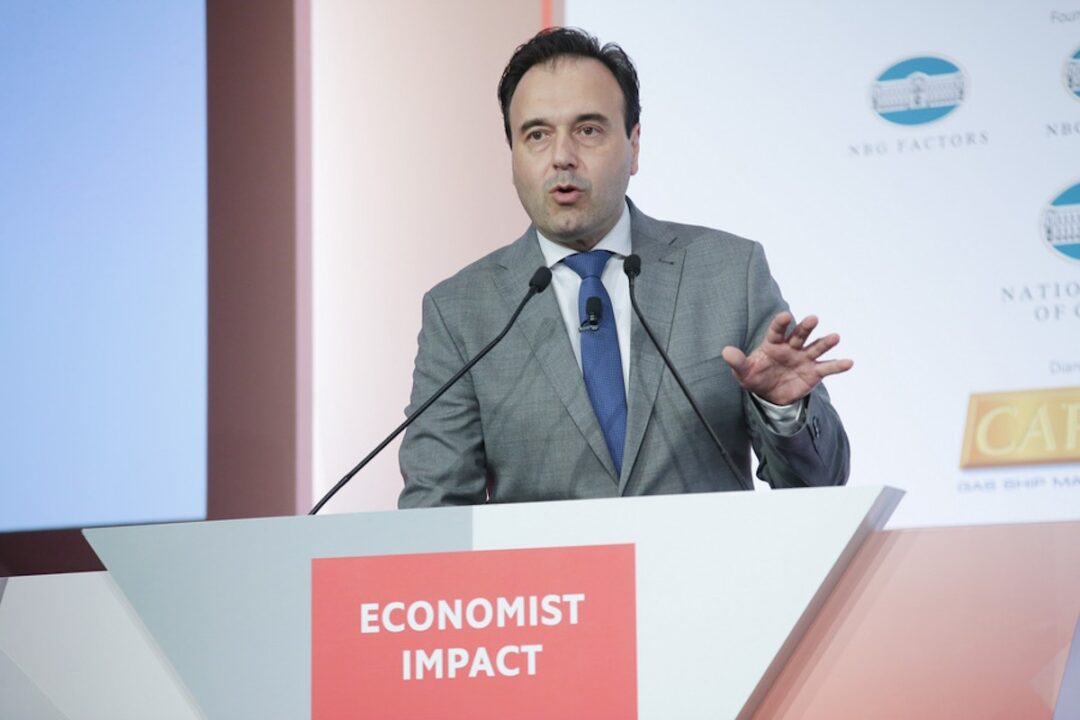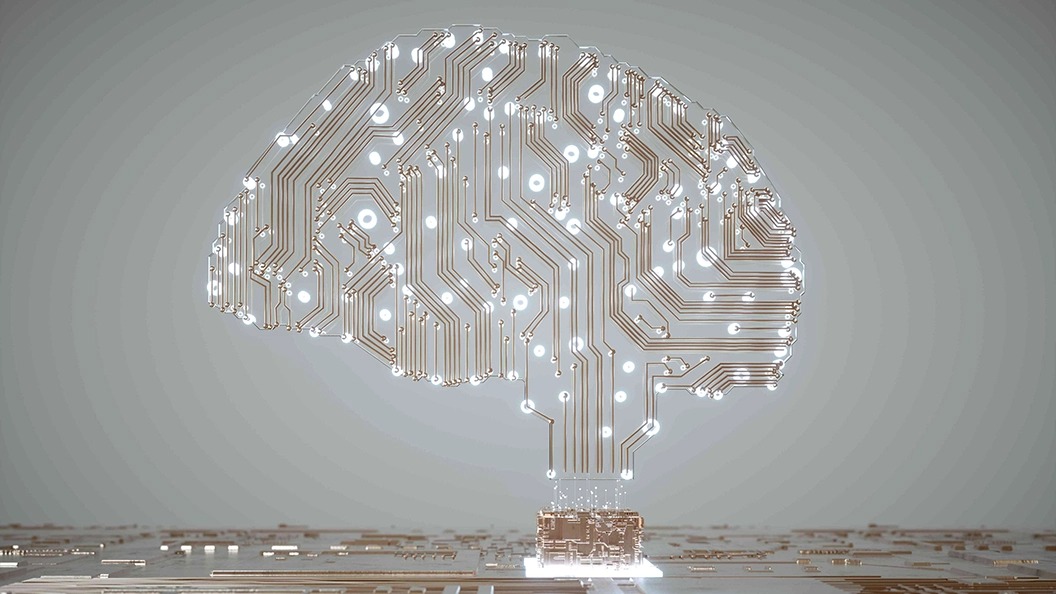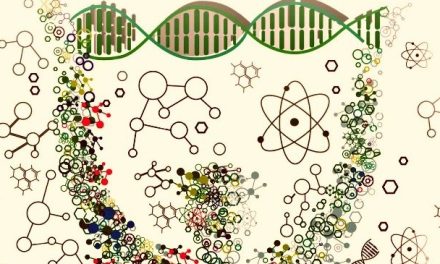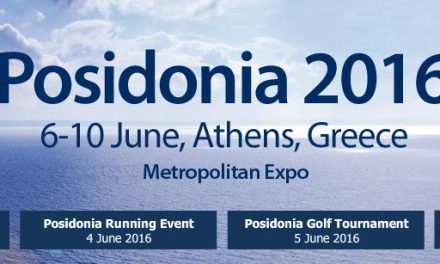The Greek proposal for the creation of an Artificial Intelligence factory in Greece has been submitted to the European Commission early November, following the relevant call from the Commission in September.
Artificial Intelligence Factories (AI Factories) is an initiative of the European Union that is expected to strengthen Europe’s capabilities in the field of artificial intelligence as well as high performance computing (HPC). The initiative aims to gather computing power, data and talent to create ecosystems/hubs that promote innovation, collaboration and growth, particularly in the field of Generative AI.
By significantly enhancing the computing resources dedicated to AI across Europe, these factories will create a robust infrastructure as the will also be interconnected, providing seamless access to European AI startups, industries, and researchers.
AI Factories are to be linked to member states’ AI initiatives, also benefiting from digital innovation hubs already in operation. The call for the creation of European AI Factories is supported by almost 1 billion euros from the EU’s “Digital Europe” and “Horizon Europe” programs and from the member states.
The submitted proposals will be evaluated by an independent panel of experts and the EuroHPC Joint Undertaking (a joint initiative between the EU, European countries and private partners to develop a supercomputing ecosystem in Europe) expects to announce the selection of the first AI factories in December 2024 and to launch their construction shortly.

The Greek proposal for “Pharos”
The Greek proposal for the establishment of “Pharos” (meaning “Lighthouse” in Greek), the Greek AI Factory, with an investment of €30 million, is one of the seven proposals submitted by EU member states to the European Commission.
The budget of “Pharos” is covered by €15 million from national funding, while the rest will come from funding through the EuroHPC JU. “Pharos” is linked to the construction of the national supercomputer “Daedalus”, a project with a budget of €35 million from the Recovery Fund, which will be installed in the new Data Center at the Technological Cultural Park of Lavrio.
The proposal is coordinated by the agency of the Ministry of Digital Governance (responsible for the development and operation of the” Daedalus” supercomputer, the basis AI Factory’s infrastructure), the National Natural Sciences Research Center “Demokritos” where the headquarters of the AI Factory will be, the National Technical University of Athens, the “Athena” Research Center, and finally, the National Fund of Greece, in order to leverage resources and mobilize the existing innovation ecosystem.
As the Minister of Digital Governance, Dimitris Papastergiou, emphasized from the podium of the Green Deal 2024 conference, “In the proposal we submitted, in addition to our own funding, the Ministry’s and the infrastructure with the “Daedalus” supercomputer, the National Fund of Greece should cover the largest percentage. The National Fund of will initiate discussions and create space for private sector initiatives.”
Greece will exploit the enormous computing power of Daedalus to create a pioneering innovation ecosystem in AI. Daedalus, managed and operated by the National Infrastructures for Research and Technology in Greece [GRNET] will provide the infrastructure for this pioneering innovation ecosystem, however the Greek of AI Factory will be open to research centers, universities as well as to the market.
The focus on AI systems that implement public interest applications and citizens’ participation is a strategic choice of the current government as they provide a key pillar for a more effective digital state. The Greek AI factory will also reportedly function as a “one-stop-shop” where businesses and organizations can get expertise and support for the development of artificial intelligence applications, data and tools, and even support for their business sustainability.
In practice, Greek businesses and organizations, by gaining access to Deadalus’ supercomputing infrastructure, optimized for AI, will be able to train and develop original large artificial intelligence andGenerative AI models, such as linguistic or multimodal models.
The Greek proposal for ‘Pharos’ focuses on three strategic pillars: health, sustainability – energy, climate change, environment – and culture/language,
- Health: development of anonymized and AI-ready health datasets (e.g. electronic health records), which will be used to improve healthcare, aiming at predictive analysis for chronic diseases and patient personalization.
- Sustainability: Addressing climate change and energy demands, Pharos will support AI-based solutions in renewable energy and resource management, leveraging artificial intelligence to reduce carbon footprint.
- Culture and language: The project aims to digitize and preserve the cultural heritage and language of Greece through the development of an open Greek Large Language Model (LLM).

Creating an open Greek Large Language Model
A key aspect of the Greek AI Factories proposal focuses on the development of Greece’s first Large Language Model (LLM). As minister for Digital Governance Dimitris Papastergiou mentioned in his interview for Insider, “this initiative is designed to safeguard and promote the Greek language within emerging technologies, ensuring that we remain competitive despite Greek being a less widely spoken language globally.”
The potential applications of Artificial Intelligence (AI) across various fields and everyday life are vast. However, a crucial prerequisite for realizing this potential is ensuring that AI systems can communicate effectively in Greek. Currently, AI language models, predominantly developed by companies like Microsoft and Google, rely heavily on English-language data. When trained to understand Greek, these models often translate from English, leading to errors and unnatural expressions that reflect the structure of English rather than Greek.
To address this challenge, Greece’s Ministry of Digital Governance, in collaboration with the Technical University of Athens and research institutes Demokritos, Athena, and GRNET, has launched a project to create a dedicated Greek language model. This initiative aims to ensure that AI tools can fully understand and utilize the Greek language, facilitating the development of applications that directly benefit Greek-speaking citizens.
According to Minister of Digital Policy Dimitris Papastergiou, this is a complex but essential project, given the volume of high-quality data required to train such a model. To build such comprehensive corpus of Greek linguistic data, it is necessary to form an “alliance for the Greek language,” bringing together libraries, the National Documentation Center, publishers, media outlets, and even audiovisual archives like those of national broadcaster ERT to contribute textual resources.

Initial steps have been taken with the creation of the Greek language model “Meltemi,” developed earlier this year using texts from school textbooks. However, much more diverse and extensive data is required to develop a robust model that captures the nuances, essence and depth of the Greek language. As Vasilios Katsouros, director of the Institute of Speech Processing at the Athena Research Center, told newspaper Kathimerini the project must involve a collaborative national effort to gather and curate high-quality linguistic resources.
The estimated cost of building a robust linguistic dataset, including around 15 billion words (equivalent to about 200,000 book titles), is approximately €3 million. Katsouros suggests that this effort should involve a dual approach: soliciting voluntary contributions of linguistic data from major content owners and investing in acquiring primary data through formal agreements. He emphasizes that this is not a profit-driven initiative but a state-led project intended to create an open and accessible resource for the benefit of all citizens. Ensuring that the material is used with the consent of its creators is a fundamental aspect of this process.
“Developing our own language models will significantly improve results for the Greek language,” emphasizes in the same Kathimerini article, Vangelis Karkaletsis, Research Director at the Institute of Informatics and Telecommunications of Demokritos. “Moreover, the data will belong to us, our country, eliminating the need to pay Microsoft, Google, or other companies for their use,” he adds. This initiative would also enable Greece to establish policies for the AI services it offers to businesses and citizens.

Another critical aspect of creating a national language model is safeguarding and preserving the Greek language in the digital sphere. “The advancement of technology, particularly artificial intelligence, introduces new challenges and risks for languages, especially those of smaller nations,” notes the Minister for Digital Governance. “Ensuring the Greek language’s presence in the digital era is vital to securing its continuity.”
Overall, according to the ministry for Digital Governance, “the development of ‘Daedalus’ and the AI Factory, at the same time as the most advanced European countries, will enable Greece to participate equally in the next phase of the interconnection of AI Factories across Europe, in the production of new products and services and in improving the level of provision of effective services to citizens, on par with the most advanced European nations.”
Read also from Greek News Agenda
I.L., with information from AMNA-MPA, Ministry of Digial Governance, Kathimerini, Naftemporiki and SEPE.














